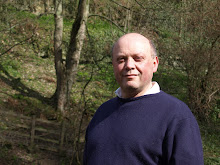© The British Postal Museum & Archive (BPMA)
The general election is almost upon us, and we’ve seen history being made with the three main party leaders debating on live television. There has also been the first health husting, with the three people who want to be secretary of state for health in England - Andy Burnham, Andrew Lansley and Norman Lamb. It’s absolutely becoming clear that the big issue, whichever country in the UK you live in, is how that country’s NHS can move forward with dramatically reduced resources.
I believe that the solution is to put the GP at the centre of the NHS, and I also believe that as GPs we have a responsibility to stand up and be counted – we need to demonstrate leadership, locally, regionally and nationally after the election. All of the political parties have been talking about primary care and the importance of the role of the GP. In England, the emphasis is on commissioning. As GPs we all know that we focus on the needs of our patients – that’s when we are at our most effective. It is encouraging to hear so many politicians talking about our federated model and it’s been really interesting to hear the differences of thought across the UK.
I am pleased to say that there are a few GPs standing for Parliament – including one of our examiners in Devon – and I watch with great interest to see how they get on. It’s a shame that Howard Stoate, who was an examiner with me a few years ago, has decided to stand down after being an MP for Dartford. He’s made a great contribution to the Health Select Committee to keeping the profile of general practice up in parliament and championing the needs of the public. He’s also been really helpful in getting the College into parliamentary meetings and to be taken seriously at the Health Select Committee. Thank you, Howard.
Last week I fulfilled a boyhood dream – being able to explore that amazing, historic ship HMS Victory. It was a great privilege to be invited to speak and dine with the doctors from the Royal Navy at their base. We discussed the future of General Practice and revalidation. The more I meet up with our colleagues in the defence services, the more I admire the work they do on our behalf, in very difficult circumstances around the world. As you will be aware, my own practice has a role in the care of defence personnel in Birmingham and is closely linked in with Sellyoak where our excellent defence service doctors look after very badly injured soldiers. It was great to meet up with my great friend, Surgeon Commodore Noel Bevan, Surgical Commander Marcus Evershed, Surgeon Captain David Brown, and their colleagues. I learned such a lot from talking over issues with them and sitting in a small workshop on consent and confidentiality. They have special issues regarding revalidation, and I came back thinking more and more that revalidation really is about professional development and needs to be a straightforward activity for GPs, low on bureaucracy, high on education and focussed on the special work that every GP does.
Tuesday was the Fourth Annual Partnership Conference of the College, the King’s Fund and the Royal College of Physicians. The theme of the conference was ‘How can clinicians improve services for patients in a cold financial climate?’ There are no easy answers of course, but one thing is for certain; the future is clearly going to be one where GPs lead in partnership with our specialist colleagues. We are presented with an opportunity when the new Government comes into place – to assert the role of GPs at the heart of the NHS – but to do this we need to be positive, constructive medical leaders providing solutions at all levels.
I also want to mention the College’s International Team, which continues to do some excellent work. We have recently signed an agreement granting MRCGP[INT] accreditation to the Egyptian Family Medicine Fellowship degree; and I would like to thank all of our international colleagues – lead by Professor Val Wass and John Howard – who work tirelessly to raise standards around the world.
As always, I value your opinions and feedback enormously, and I urge you to get in touch if you have any comments or questions for me.


